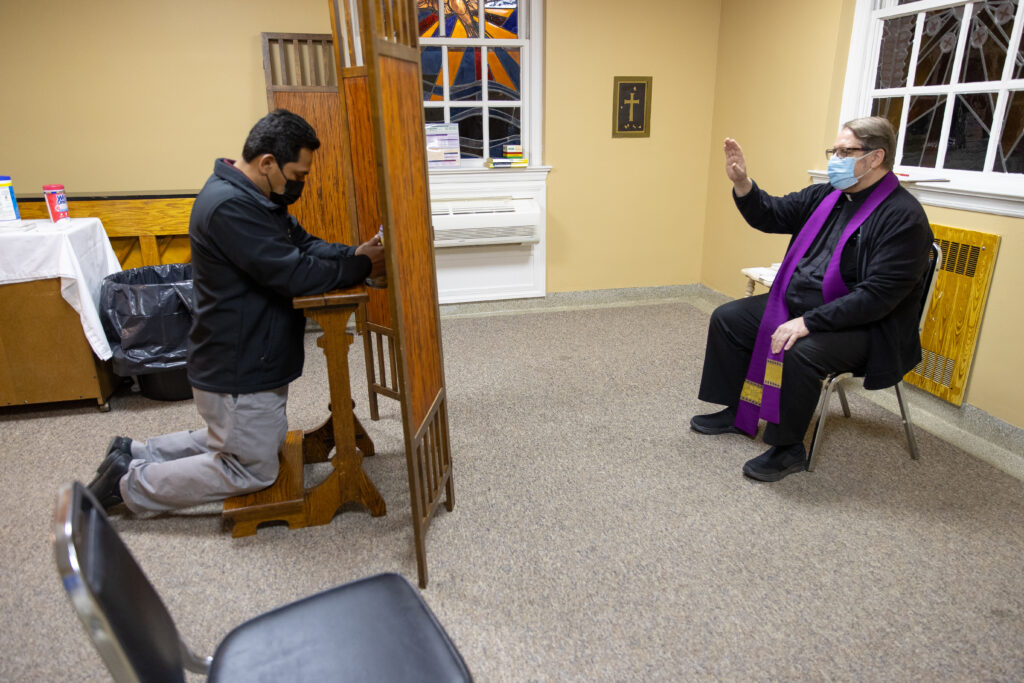Rev José Mario O Mandía
jmom.honlam.org
Some people mistakenly equate “being Catholic” with “being perfect.” Jesus clearly taught, however: “Those who are well have no need of a physician, but those who are sick; I have not come to call the righteous, but sinners to repentance” (Luke 5:31-32; cf Mark 2:17).
We become Catholics because we know we are sinners, not because we think we are saints. Because of original sin, all of us are sick. All of us need to be cured. The Church is the hospital where we look for the Divine Physician who will cure us.
“Through the sacraments of Christian initiation, man receives the new life of Christ. Now we carry this life ‘in earthen vessels,’ and it remains ‘hidden with Christ in God’ (II Corinthians 4:7; Colossians 3:3). We are still in our ‘earthly tent,’ subject to suffering, illness, and death (II Corinthians 5:1). This new life as a child of God can be weakened and even lost by sin” (CCC 1420).
This is why our Lord Jesus Christ instituted two sacraments that make it possible to strengthen whatever is weak, or to restore whatever may have been lost. Such is the infinite mercy of God! The CCC (1421) teaches us: “The Lord Jesus Christ, physician of our souls and bodies, who forgave the sins of the paralytic and restored him to bodily health (cf Mark 2:1-12), has willed that his Church continue, in the power of the Holy Spirit, his work of healing and salvation, even among her own members. This is the purpose of the two sacraments of healing: the sacrament of Penance and the sacrament of Anointing of the Sick.”
The Sacrament of Penance has been instituted by Jesus Christ to forgive sins committed after Baptism, “for the conversion of the baptized who have been separated from him by sin” (CCCC 297).
Baptism forgives original sin and all personal sins. A baptized person, however, continues to harbor the weakness caused by original sin. Saint Paul himself exclaimed, “For I delight in the law of God, in my inmost self, but I see in my members another law at war with the law of my mind and making me captive to the law of sin which dwells in my members. Wretched man that I am! Who will deliver me from this body of death?” (Romans 7:22-24).
Saint John, in his First Letter (1:8) writes: “If we say we have no sin, we deceive ourselves, and the truth is not in us.”
Even in our prayers, we acknowledge that we fall. For example, every time we recite the Lord’s Prayer, we say, “Forgive us our trespasses” (cf Luke 11:4; Matthew 6:12). And when we pray to the Blessed Virgin, we say, “Pray for us sinners….”
This is why the CCCC teaches: “Conversion is a continuing obligation for the whole Church. She is holy but includes sinners in her midst” (no 299).
Can we not confess directly to God? Why is there a need for a sacrament? We have explained in BST 114 the rationale for the sacraments, the reason why God chose certain signs and established these as proofs that grace is being given. The Sacrament of Penance is the visible guarantee that a person’s sins are forgiven. If he were to confess directly to God, how would he know he has been forgiven? So God set up a visible tribunal on earth that would dispense Divine Justice and Mercy.
When did Jesus institute this Sacrament?
“The risen Lord instituted this sacrament on the evening of Easter when he showed himself to his apostles and said to them, ‘Receive the Holy Spirit. If you forgive the sins of any, they are forgiven; if you retain the sins of any, they are retained’ (John 20:22-23)” (CCCC 298).
We Catholics know we are sinners. We believe that the Catholic Church has the means to forgive our sins. A faithful Catholic seeks forgiveness and healing. A faithful Catholic goes to confession.
(Photo in the Catholic Star Herald by Father Matthew Weber, pastor of Holy Cross Parish, Bridgeton, NJ.)


 Follow
Follow


